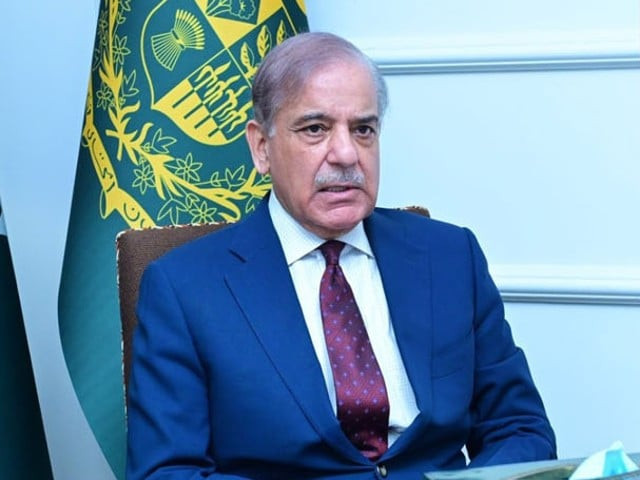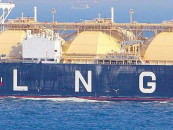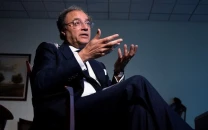Inflation falls to two-year low of 17.3%
Central bank has maintained the policy rate at 22%, highest rate since 1972

Three days after the State Back of Pakistan kept interest rates unchanged under pressure from the International Monetary Fund, Pakistan’s inflation fell to a two-year low of 17.3% in April, bringing into question the credibility of the official decision making.
The fall in the inflation rate was expected and yet the central bank maintained the interest rates at the highest level of 22% in its last monetary policy committee meeting.
The Pakistan Bureau of Statistics reported on Thursday that the pace of increase in the prices of goods and services slipped to 17.3% in April over the corresponding month of the last year. It was the lowest rate in the past two years and was close to the point from where the prices had started peaking.
The fall in the inflation rate was also more than the expectations of the Ministry of Finance, which had a projection of 18.5% to 19.5%. It was the fourth consecutive month when the pace of increase remained on the downward trajectory.
The central bank has maintained the policy rate at 22%, which is the highest rate since 1972 and unjustifiable as the inflation in Pakistan is mostly driven by the administered price increase or food supply shocks. The interest rates are now higher than the headline as well as the core inflation rate.
Succumbing to the IMF diktat has rendered the Monetary Policy Committee ineffective. The IMF has publicly asked Pakistan to continue with the tight monetary policy. Pakistan’s economy grew at a pace of just 1% during the second quarter of this fiscal year whereas the industrial sector contracted by 0.9%.
In its new budget proposals, the Pakistan Business Council said that high interest rates and a deliberate “demand destruction” policy have led to the closure of many manufacturing units and unemployment. As a result, large sections of the population are finding it hard to make ends meet.
Last month, the World Bank said that over 10 million more Pakistanis were at the verge of slipping into the poverty trap. The high interest rates despite a relatively low inflation rate have pushed the finance ministry to a position where it is spending more than its entire net federal income on the interest cost. During the first nine months of this fiscal year, the federal government’s net income was Rs5.313 trillion but its expenses on the interest payments was Rs5.517 trillion.
The PBS inflation bulletin showed that the pace was easing for both the food and energy items, which further eased in both rural and urban areas.
In the Monetary Policy Statement, the central bank had to admit that the “committee views inflation to continue to remain on a downward trajectory”. However, the MPC also noted that this inflation outlook is susceptible to risks emanating from the recent global oil price volatility along with bottoming out of other commodity prices; potential inflationary impact of resolution of circular debt in the energy sector; and tax rate-driven fiscal consolidation going forward.
The non-food inflation rate in urban areas slowed down to 25.6% and to 20% in rural areas. The electricity, gas, petrol, diesel and transport charges kept the non-food inflation rate in the double digits. The gas rates were 319% higher than the previous year and the electricity cost was nearly three-fourth more than the last year.
Read Inflation falls to two-year low of 20.7% in March
The food inflation decelerated in cities and rural areas. In urban centers it slowed down at a much faster pace to 11.3% and slipped to single digit at 9.7% in villages and towns, according to the PBS.
The core inflation, which is calculated after excluding the energy and food items, slightly inched up to 13.1% in urban areas. But it fell below 20% in rural areas. The average core inflation is now almost 6% lower than the policy rate.
There was still a double-digit increase in the prices of all the groups of commodities barring alcoholic beverages, tobacco and perishable food.
The non-perishable goods prices increased at a single digit rate of 9.7% while the perishable goods inflation rate was below 7%. There was 10.5% reduction in the prices of wheat products and 9.7% of the wheat in April over the preceding month, according to the PBS.
The main reason was the selling of the commodity at much below the minimum wheat support price of Rs3,900 per 40 kg. In an irrational and dubious move, the caretaker government had allowed import of wheat. It benefited the urban consumers but deprived the farmers from earning profits on one of their two cash crops–wheat.
Till the end of May, the private sector imported 3.5 million metric tons of wheat costing $1.1 billion. The average inflation rate also slowed down to just under 26% but it was higher than the annual inflation target of 21%. The IMF is asking Pakistan to keep the interest rates high despite it sees inflation rate slowing down to 12.7% in the next fiscal year.



















COMMENTS
Comments are moderated and generally will be posted if they are on-topic and not abusive.
For more information, please see our Comments FAQ